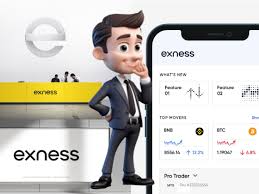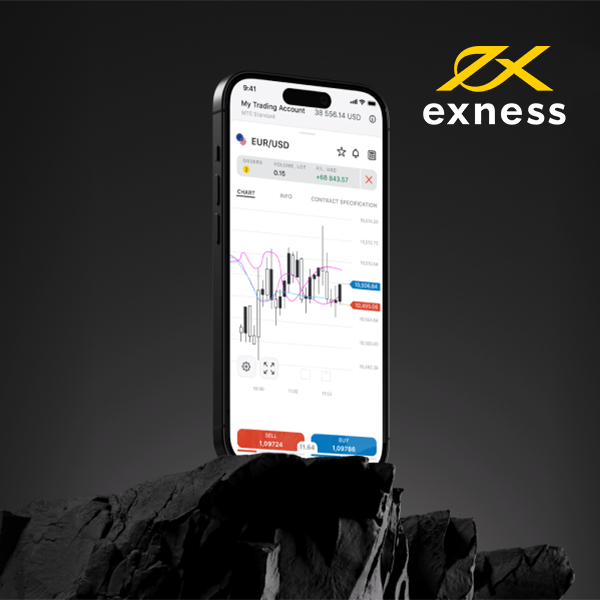
Understanding Competitive Exness Fees
When it comes to trading in the Forex market, the fees associated with a broker can significantly impact your overall profitability. Exness is known for its competitive trading fees, which have attracted traders from around the globe. In this article, we will delve into the different fees Exness offers, how they compare to industry standards, and what it means for your trading strategy. If you’re looking for a comprehensive guide on creating a duplicate trading account, check out this useful resource: Competitive Exness Fees https://xatzimanolisdieselservice.gr/petunjuk-untuk-membuat-akun-perdagangan-duplikat-8/.
The Importance of Trading Fees
Before diving into the specifics of Exness fees, it’s essential to understand why trading fees hold such significance. Trading fees directly affect your bottom line, as they represent the cost of executing your trading strategy. These costs can include spreads, commissions, overnight fees, and deposit/withdrawal charges. A broker offering lower fees can give you a significant advantage, especially in a competitive trading environment.
Types of Fees at Exness
Exness offers a variety of trading accounts, including Standard and Professional accounts, each with different fee structures. Here are the main types of fees you should be aware of:
1. Spreads
The spread is the difference between the buying price and the selling price of a currency pair. Exness offers both fixed and variable spreads, depending on the account type. Generally, variable spreads can be lower during high liquidity times, while fixed spreads provide more predictability in trading costs. For example, spreads on major currency pairs can be as low as 0.0 pips, depending on the market conditions.
2. Commissions
While some accounts at Exness have no commission fees, others may charge a commission for each trade executed. Typically, commission fees can range based on the account type and trading volume. For instance, Professional accounts often offer tighter spreads combined with a small commission, which can be beneficial for traders implementing a scalping strategy.
3. Swap Fees
Swaps, or overnight fees, are charged when positions are held overnight. These fees can either be positive or negative, depending on the interest rate differential between the currencies you are trading. Exness applies swap rates based on the respective market and account type. Traders should keep this in mind, as overnight positions can quickly add to your trading costs or contribute to your profits.

4. Deposit and Withdrawal Fees
Exness stands out with its policy on deposit and withdrawal fees. Many deposit methods, including bank transfers and e-wallets, are free of charge. However, it’s important to consider the transfer fees charged by payment processors. Withdrawals are generally processed quickly without additional costs, making Exness a favorable option compared to some other brokers that do charge for these services.
5. Inactivity Fees
Exness charges an inactivity fee for accounts that remain dormant for an extended period. This fee can encourage traders to stay active or trade regularly, but it’s essential to manage your account wisely to avoid these charges. If you’re planning to take a break from trading, make sure to review their inactivity policy.
Why Choose Exness for Competitive Fees?
Exness’s variety of accounts and fee structures appeals to both novice and experienced traders. Competitive fees allow for efficient trading, meaning less capital is drained by trading costs. This transparency in fees also builds trust, allowing traders to focus more on their trading strategies without worrying about hidden costs.
Comparing Exness Fees with Competitors
When assessing the competitiveness of Exness fees, it’s beneficial to compare them with other platforms in the industry. Some brokers may offer lower spreads but compensate through higher commissions or vice versa. Considering the overall cost of trading with Exness compared to its competitors often reveals that they remain in a strong position regarding total trading costs.
Tips to Minimize Trading Costs
Even with competitive fees, traders can take steps to minimize their overall trading costs:
- Choose the Right Account Type: Select an account type that aligns with your trading strategy. For instance, scalpers may benefit from accounts with lower spreads and commissions.
- Trade During High Liquidity Hours: By trading during peak market hours, you can access the lowest spreads offered by Exness.
- Stay Informed of Market Conditions: Understanding market dynamics can help in predicting spread changes, allowing traders to make informed decisions.
Final Thoughts
Overall, Exness offers some of the most competitive fees in the trading industry. With a clear structure of spreads, commissions, and low deposit/withdrawal fees, it positions itself as a significant player for both novice and seasoned traders. By understanding the fee structure and integrating effective trading strategies, traders can significantly optimize their overall trading performance.



